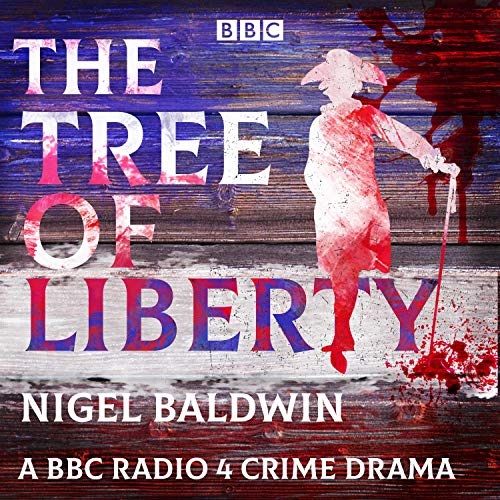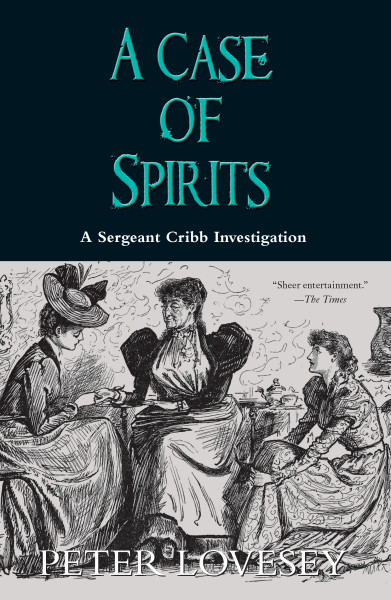
Abir Mukherjee
Originally Published 2017
Sam Wyndham #2
Preceded by A Rising Man
Followed by Smoke and Ashes
Abir Mukherjee’s first mystery novel, A Rising Man, was one of my favorite reads of 2017. Because I read it several months before starting this blog though I have never really shared my thoughts about it.
That novel is a superb historical mystery that is set in India in the years immediately following the First World War. There are many reasons to recommend it, not least the author’s ability to convey a strong sense of place and culture and the two remarkable main characters. It is a page-turning read and one I find myself regularly recommending on the staff picks rack at my place of work.
A Necessary Evil is a sequel to that book and I am surprised and happy to be able to say I found it an even stronger read than the first one, though I think readers would be best served by starting at the beginning. Before I explain why, I ought to tell you a little bit about its plot.
The book begins close to a year after the events of the previous novel. The heir to the throne of the wealthy kingdom of Sambalpore seeks out Captain Wyndham and Sergeant Banerjee (who, it turns out, is an old school friend) to consult them about some strange letters he has received that seem to suggest a threat to his life. As they discuss the matter his car is attacked in an ambush and he is killed.
While Wyndham is able to track down the assassin it is clear that further investigation is needed to understand why this has happened and how it was possible for an ambush to take place when the route they were travelling had not been prearranged. Though political considerations make it impossible to formally continue their investigation, Wyndham and Banerjee travel to Sambalpore in search of answers.
The novel contains an excellent mystery plot but it also reads like a thriller, particularly in the final chapters which have a page-turning, race against time quality. This is not a change of style but rather reflects how the circumstances of the novel manage to amplify the tension at key moments.
In each novel Wyndham is in a position where he is an outsider. In A Rising Man he is a stranger to India, learning to navigate Indian society while trying to solve a murder. Here he finds himself in a country where he has no legal authority and may be given the order to stop and to return home. He is isolated, has few resources he can call on and is treated with suspicion by almost everyone he encounters.
I also appreciated that Mukherjee reduces the amount of discussion of Wyndham’s opium addiction in this second book, though it remains an important part of his character and of the plotting. As a result the calmer, clearer Wyndham is able to show more of his detective skills as he works to understand the complex relationships within the palace and learn about the circumstances of the prince’s death.
His assistant Sergeant “Surrender-not” Banerjee, so named because none of his British colleagues can pronounce his actual name, remains a delight and gets a few moments to shine. I appreciate his steadiness as a secondary investigator and I like his relationship with Wyndham which is generally respectful and constructive.
A secondary character makes a return from the first book and she makes an important contribution to the investigation. Her involvement helps to reinforce one of the series’ most potent themes – that social status shifts and can be a matter of perspective.
That idea is crystallized in a wonderful exchange in the very first chapter of the book when the Prince points out to Wyndham that the question of precedence between the Indian prince, the British policeman representing the crown and his Indian sergeant from the priest caste is far from simple. Throughout the novel we see Wyndham confronting his own lack of status within Sambalpore as he is unable to gain access to people he wishes to speak with, impeding his investigation.
Speaking of that investigation, the mystery here is a good one and very well plotted. Mukherjee creates an intriguing cast of characters and while the identity of the villain didn’t surprise me, I felt the resolution was extremely powerful and effective.
The best historical mysteries do not simply entertain but they educate, inform and speak to aspects of our culture and society. A Necessary Evil does this, discussing aspects of British rule in India without becoming polemical and exploring fascinating themes such as of the nature of justice and the transience of social status. Its characters are compelling, as is the case they are investigating. If you haven’t tried the first one, I’d definitely recommend starting there (there are references made to events that take place at the end of the previous novel) and just know that you will be in for a treat when you get to the second. Highly recommended.
A copy of the novel was provided by the publishers through NetGalley for review though I have also purchased my own copy.




Leave a comment